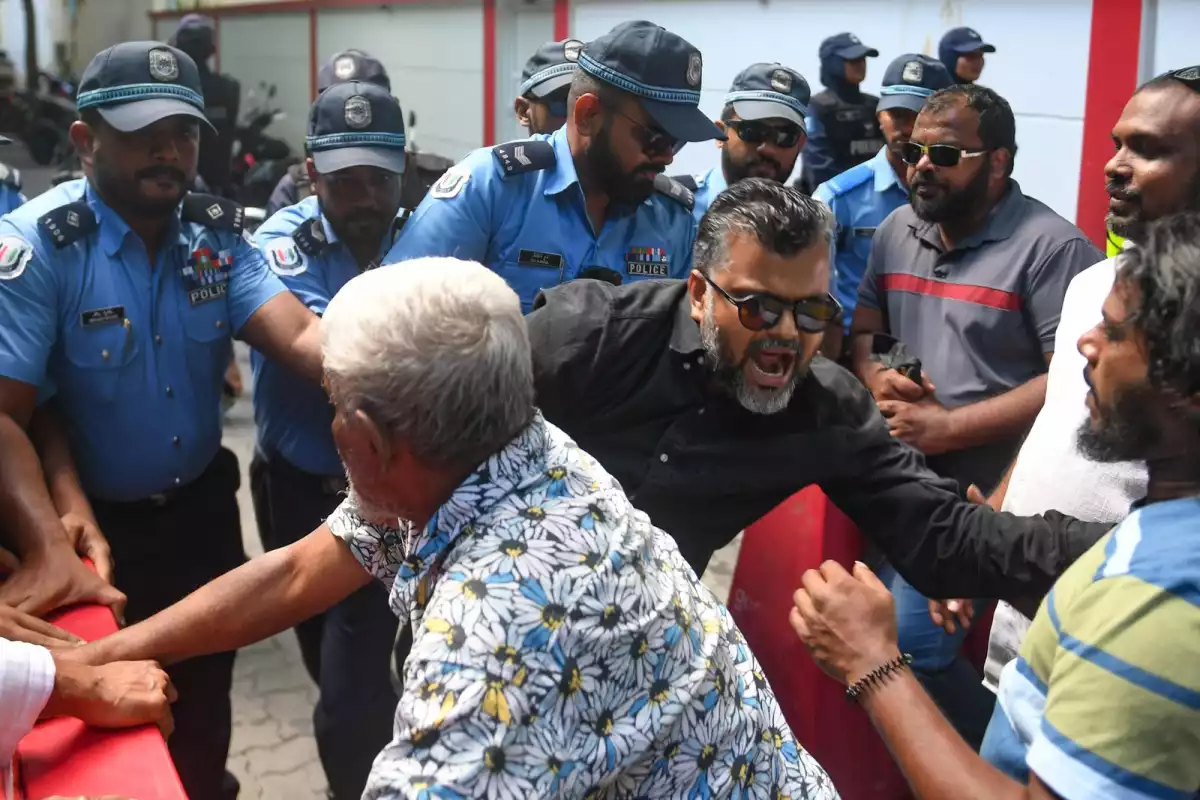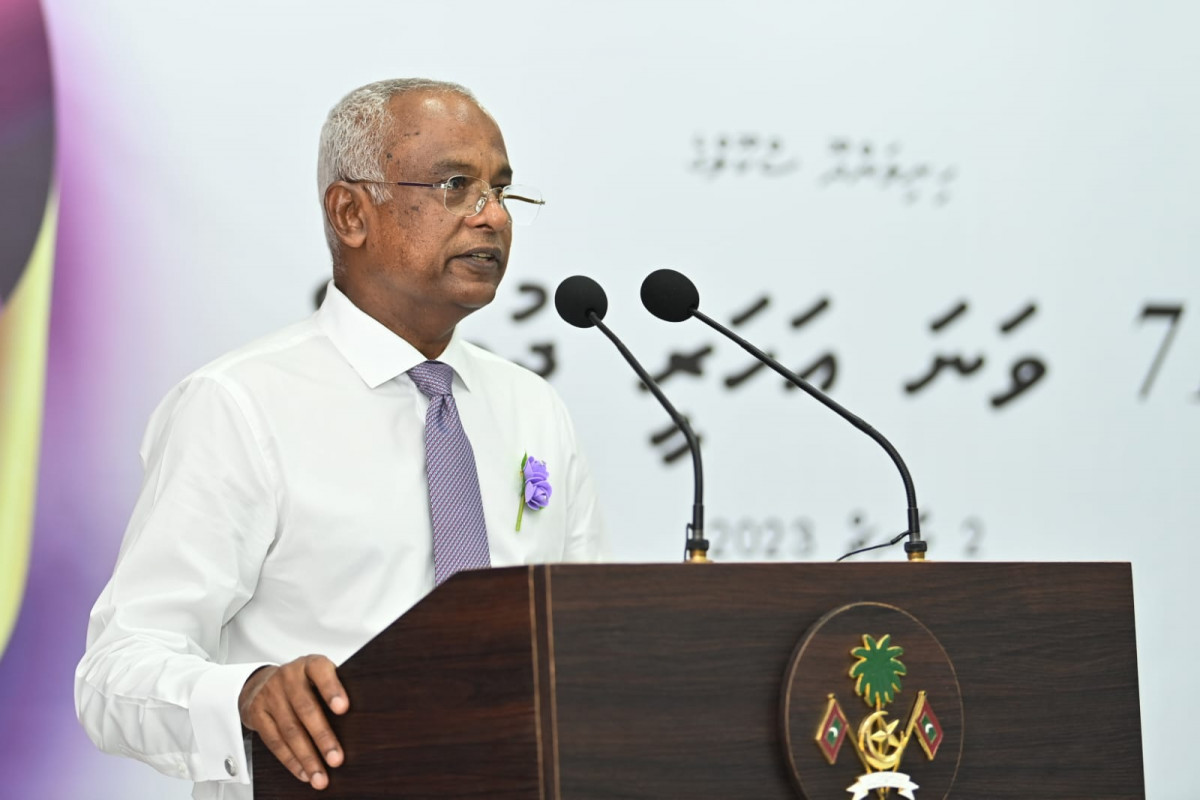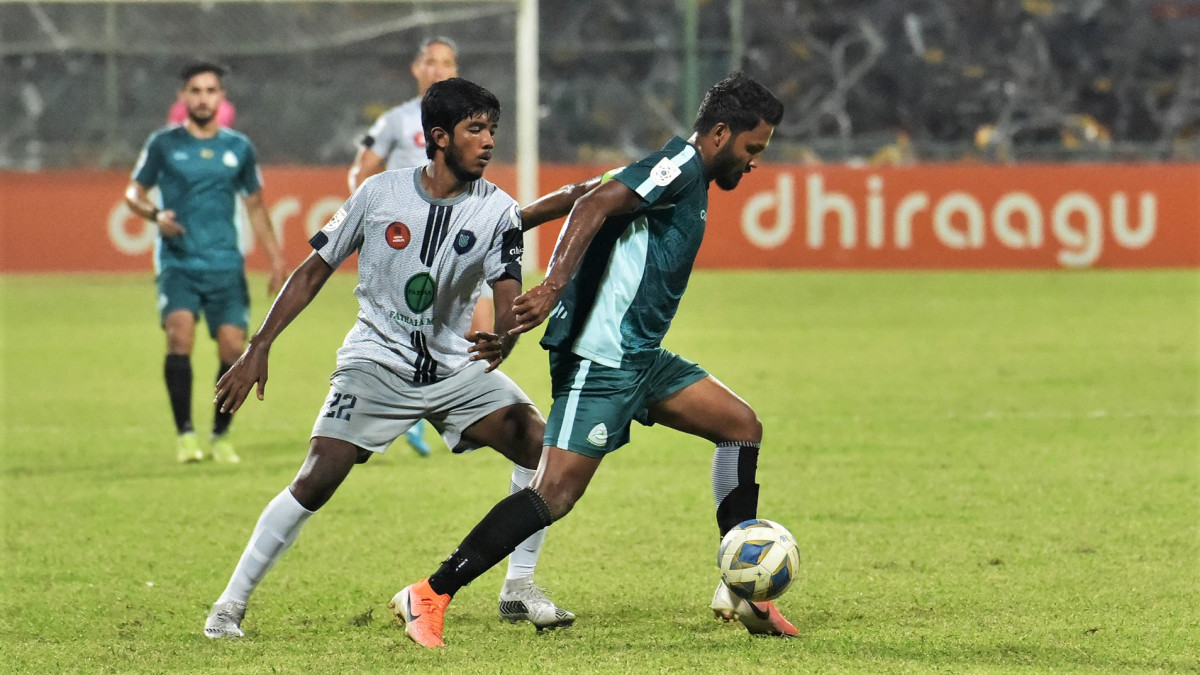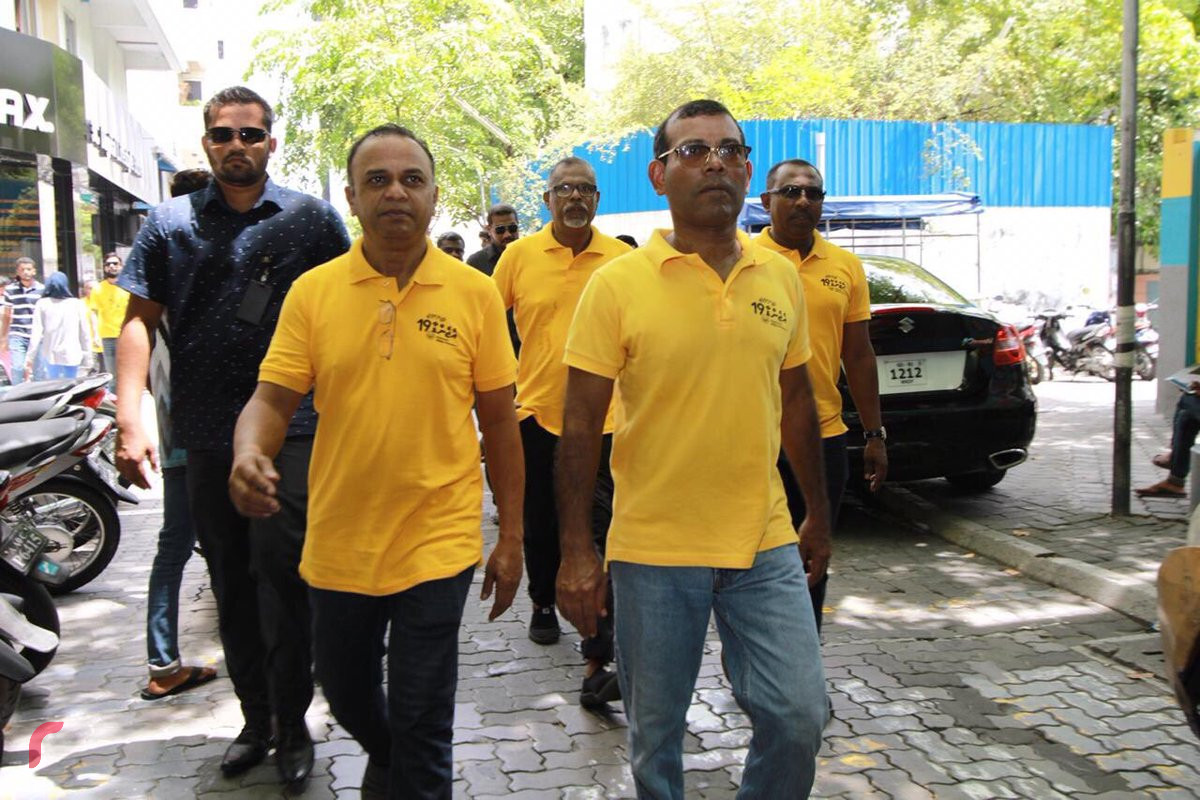Death of free speech: media control bill ratified, ushering in new age of control
With the stroke of a pen, the Maldivian government has declared war on journalism


Journalists rally against legislation threatening the survival of independent media. 16.09.2025.
A dark chapter has unfolded for Maldivian democracy, with the ratification of the draconian media control bill.
President Dr. Mohamed Muizzu ratified the media control bill, an authoritarian stroke that deals a fatal blow to free speech, independent journalism, and the very foundations of democratic accountability in the Maldives, on Thursday.
With the bill now enshrined into law following its publication in the government gazette, the ruling regime has codified its power to silence dissent. The bill was rammed through the People’s Majlis under a cloud of controversy, it was fast-tracked in blatant violation of procedural norms, bypassing legal counsel, and passed in the dead of night, while citizens and journalists protested in the streets, pleading for the survival of press freedom.
Many believe this law is not a safeguard for truth, but an instrument of suppression. The newly formed commission under the bill wields unchecked authority to shut down newspapers, suspend broadcast licenses, sue journalists, and ban reporting, which effectively places every voice of dissent under a sword of state-sanctioned censorship.
Although the government cloaks the law in language about "responsible journalism" and "modern standards," the reality is clear: any reporting on corruption, abuse of power, or government malpractice can now be silenced under the guise of “false news.”
Once the regime labels a story as untrue, both the journalist and the platform are at risk, facing fines, shutdowns, or worse.
The scope of the law is totalitarian in nature. It extends its grip beyond traditional media to online platforms and even personal social media accounts including TikTok, X, Facebook, and Instagram, ensuring that no space remains safe for free expression. A government-appointed commission now has the power to dictate what is real and what is not, transforming truth itself into a state-controlled commodity.
In its wake, this law dismantles every major institution that once stood to protect media freedom. The Maldives Media Council is dissolved. The longstanding law governing newspapers and magazines is repealed. The Maldives Broadcasting Commission is swallowed into a new superbody, the Maldives Media and Broadcasting Commission, tasked with enforcing the regime’s will. Until this commission is formally established, a handpicked five-member committee will wield its sweeping powers, answering to no one but the regime itself.
International watchdogs and journalism organizations have sounded the alarm, urging the president to reject this oppressive legislation. Their warnings have fallen on deaf ears. The government, determined to erase scrutiny and hide the scale of corruption, has chosen instead to build a legal fortress against truth.
This is not regulation. It is eradication. With the stroke of a pen, the Maldivian government has declared war on journalism, and on the right of every citizen to speak, report, and resist.






